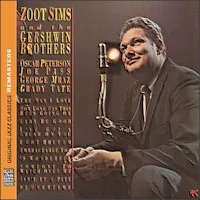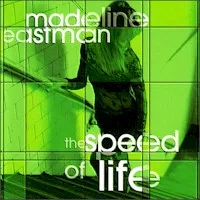Bitrate: MP3@320K/s
Time: 52:36
Size: 120.4 MB
Styles: Piano jazz, Vocal jazz
Year: 2014
Art: Front
[4:19] 1. That Old Feeling (Feat. Kate Reid)
[4:56] 2. All My Tomorrows (Feat. Kate Mcgarry)
[4:22] 3. Three Little Words (Feat. Kevin Mahogany)
[4:49] 4. Get Out Of Town (Feat. Derek Fawcett)
[4:56] 5. Not While I'm Around (Feat. Sunny Wilkinson)
[4:02] 6. Girl Talk (Feat. Wendy Pederson)
[4:19] 7. Dindi (Feat. Rose Max & Ramatis Moraes)
[5:31] 8. Friendship (Feat. Anders Edenroth)
[4:14] 9. I'm Glad There Is You (Feat. Peter Eldridge)
[5:55] 10. Moon Ray (Feat. Lauren Kinhan)
[5:10] 11. So Many Stars (Feat. Kate Reid)
Jeremy Fox: piano (5), keyboards (6); Kate Reid: vocals (1, 11); Kate McGarry: vocals (2); Kevin Mahogany: vocals (3); Derek Fawcett: vocals (4); Sunny Wilkinson: vocal (5); Wendy Pedersen: vocals (6); Rose Max: vocals (7); Anders Edenroth: vocals (8); Peter Eldridge: vocals (9); Lauren Kinhan: vocals (10); Daniel Strange: piano, keyboards; Rene Toledo: guitar; Geoffrey Saunders: bass; Michael Piolet: drums; Ramatis Moraes: guitar (7); Lindsey Blair: guitar (6); Zach Larmer: guitar (6); Steve Lewis: drums (6); Angelo Versace: piano (4); Tim Jago: guitar (4); Daniel Susnjar: drums (4); Ryan Chapman: trumpet, flugelhorn; Paul Equihua: trumpet, flugelhorn; Jared Hall: trumpet, flugelhorn; Derek Ganong: trumpet, flugelhorn; Eric Bowman: trombone; Stephen Szabadi: trombone; Chris Gagne: trombone; Major Bailey: bass trombone; Neil Carson: alto saxophone; Dan Andrews: tenor saxophone; Alex Weitz: tenor saxophone; Matt Burchard: tenor saxophone; Derek Smith: tenor saxophone, clarinet, bassoon; Matt Small: clarinet; Ernesto Fernandez: flute; Erin Fishler-Branam: background vocals (8); Sherrine Mostin: scratch vocals; Pedro Fernandez: percussion; Nathan Skinner: vibraphone; Maria Chlebus: vibraphone (6); Vivek Gurudutt: table; Phuttaraksa Kamnirdratana: harp; Cassandra Eisenreich: flute; Allison Hubell: flute; James Drayton: oboe; Rachel Lueck: English Horn; Peter Bianca: clarinet; Carlos Felipe Vina: bassoon; Julia Paine: bassoon; Mathew Shefcik: flugelhorn; Stanley Spinola: horn; Larysa Pavecek: horn; Jon Lusher: horn; Sarah Williams: horn; Adam Diderrich: concertmaster; Michelle Godbee: violin; Patricia Jancova: violin; Karen Lord-Powell: violin; Zachary Piper: violin; Katrina Schaefer: violin; James Schlender: violin; Arianne Urban: violin; Steffen Zeichner: violin; Amanda Diaz: viola; Emily Jones: viola; Robyn Savitzky: viola; Kathryn Severing: viola; Joy Adams: cello; Sarah Gongaware: cello; Cecelia Huerta: cello; Chris Young: cello.
Dr. Jeremy Fox has certainly made his mark in the jazz world but, not as a singer or musician but rather, as an educator/clinician, vocal coach and arranger, and on his inaugural album With Love, Fox offers an inspirational vocal album of jazz standards deserving serious attention. Assembling a group of ten world-class vocalist with varied combos, studio orchestra, a big band and a string section, Fox presents eleven newly-arranged standards from the likes of Sammy Cahn, Cole Porter, Neil Hefti and Artie Shaw among others. Writing custom arrangements for a host of top-notch singers was, in part, based on his Doctoral project in Jazz Composition at the Frost School of Music at the University of Miami, the beautiful music found on this album, is the result of that creative effort.
Based in Miami, FL, the Doctor draws from many area singers with national reputations like fellow alumnus Kate Reid, Kevin Mahogany, Wendy Pedersen as well as drawing international artists like Peter Eldridge and Lauren Kinhan —both members of the renowned New York Voices—along with Brazilian singer Rose Max and Swedish vocalist Anders Edenroth. Opening the music is a brand new arrangement of the time-honored Lew Brown/Sammy Fain standard "That Old Feeling" with Professor Reid providing the smooth vocals befitting such a tune. Essentially, book ending the album by appearing one more time on the finale, Reid—with the accompaniment of the String section—provides a truly inspiring version of the Sergio Mendes staple "So Many Stars."
Grammy-nominated singer Kate McGarry graces the recording with a tender treatment of the Cahn/Van Heusen standard "All My Tomorrows" followed by one of the highlights of the disc with baritone vocalist Kevin Mahogany's superb voicing of "Three Little Words." Not to be outdone, Derek Fawcett—founding member of the Chicago-based pop group Down The Line—delivers a fantastic version of "Get Out of Town," featuring Alex Weitz on tenor saxophone with some of the best instrumentals of the recording. Versatile jazz singer Sunny Wilkinson provides a warm and gentle take of the Stephen Sondheim song "Not While I'm Around" followed by a terrific arrangement of the Hefti/Bobby Troupe classic "Girl Talk," delivered by the sensational Wendy Pedersen with a little help from alto saxophonist Neil Carson.
Two beautiful soft spots on the recording come from first, the Edenroth original "Friendship" complete with cello, flugelhorn and flute solos, and the Jimmy Dorsey immortal "I'm Glad There Is You" voiced with emotion by Eldridge. Fellow New York Voices member, Kinhan gets to swing a bit on the big band arrangement of Shaw's perky "Moonray" assisted by pianist/keyboardist Daniel Strange, director of an All-Star Jazz ensemble in Coral Gables, FL. Cleverly crafted for some of arranger Jeremy Fox's favorite singers, With Love is a treasure trove of gorgeous arrangements, outstanding vocal performances and stellar instrumentals—all defining this charming recording as one of the best vocal albums on the jazz landscape. ~Edward Blanco
With Love




















